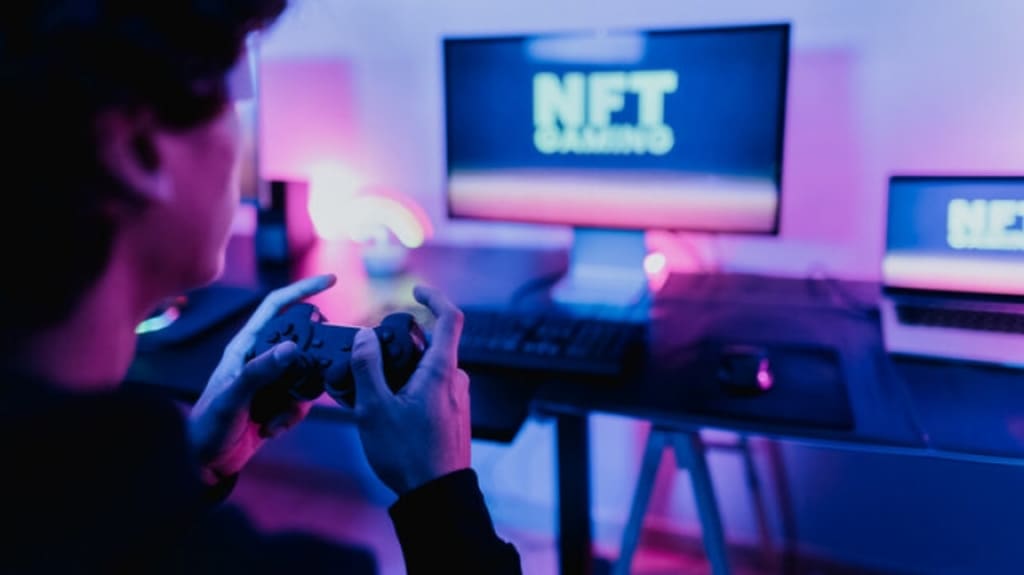Unlocking the Future: Exploring the Impact of NFTs in Gaming
Embracing a Revolutionary Shift in Gaming Ownership and Monetization

In recent years, the gaming industry has witnessed a revolutionary technology that is reshaping the way players interact with virtual worlds and digital assets. Non-Fungible Tokens (NFTs) have emerged as a groundbreaking innovation, enabling gamers to truly own and trade unique in-game items. This article delves into the profound impact of NFTs in gaming, highlighting the benefits, challenges, and future possibilities they bring to the table.
What are NFTs?
NFTs, or Non-Fungible Tokens, are cryptographic assets built on blockchain technology that represent ownership of a unique item or piece of digital content. Unlike cryptocurrencies such as Bitcoin or Ethereum, which are interchangeable, NFTs are one-of-a-kind and cannot be replicated. Each NFT holds distinct characteristics, making it verifiably scarce and valuable.
The Rise of NFT Gaming Platforms
NFT gaming platforms have quickly gained traction, offering players new avenues to engage with their favorite games and monetize their virtual possessions. These platforms integrate blockchain technology to ensure the authenticity, provenance, and scarcity of in-game assets. With NFTs, gamers can buy, sell, and trade items with real-world value, providing a tangible ownership experience previously unattainable.
Benefits of NFTs in Gaming
True Ownership of In-Game Assets
NFTs enable gamers to have true ownership of their in-game assets. Traditionally, players would spend countless hours grinding for rare items, only to have them locked within the game's ecosystem. With NFTs, players have full control and can freely transfer, sell, or trade their items outside the game environment.
Real-World Value and Economic Opportunities
The introduction of NFTs in gaming has brought real-world value to virtual assets. By attaching tangible worth to in-game items, players can monetize their time and efforts spent in the virtual realm. NFTs have opened up new economic opportunities, allowing gamers to earn income, support their gaming habits, and even establish virtual marketplaces.
Enhanced Interoperability and Cross-Game Compatibility
NFTs promote interoperability between different games and platforms. Gamers can possess items from one game and utilize or trade them in another. This cross-game compatibility fosters a sense of continuity, allowing players to carry their valuable assets and achievements across multiple gaming experiences.
Challenges and Limitations
While NFTs present exciting possibilities, there are several challenges and limitations that need to be addressed for widespread adoption and success.
Environmental Concerns
The underlying blockchain technology used for NFTs often relies on energy-intensive consensus mechanisms, such as Proof of Work (PoW). This energy consumption has raised concerns about the carbon footprint associated with NFT transactions. However, efforts are being made to explore more sustainable solutions, like transitioning to Proof of Stake (PoS) algorithms.
Scalability and Cost
The scalability of blockchain networks and the associated transaction costs are significant hurdles that need to be overcome. Currently, some NFT platforms face challenges in handling large-scale adoption, resulting in high transaction fees and network congestion. Ongoing advancements in blockchain technology aim to address these issues and provide more efficient and cost-effective solutions.
The Future of NFTs in Gaming
The future of NFTs in gaming holds immense potential, with several exciting developments on the horizon. Here are some key areas where NFTs are expected to make a significant impact:
Play-to-Earn Models
NFTs have laid the foundation for play-to-earn models, where players can earn real-world rewards by participating in and contributing to games. This shift in the gaming paradigm has the potential to revolutionize the industry, empowering players to generate income and fostering a more inclusive gaming ecosystem.
Virtual Real Estate and Metaverses
NFTs have expanded beyond in-game items to include virtual real estate and metaverses. Players can purchase and own virtual land, buildings, and other properties, creating a new dimension of virtual experiences and economic possibilities. Metaverses, immersive virtual worlds, are becoming increasingly popular, and NFTs play a vital role in establishing and sustaining these digital realms.
Collaborations and Crossovers
NFTs facilitate collaborations and crossovers between different games, franchises, and even industries. By combining assets and intellectual properties, developers can create unique gaming experiences and unlock new revenue streams. NFTs provide a framework for these collaborations, ensuring the authenticity and traceability of digital assets across diverse ecosystems.
Conclusion
The advent of NFTs has ushered in a new era for gamers, offering true ownership, economic opportunities, and enhanced gaming experiences. NFT gaming platforms have revolutionized the industry, providing players with the ability to monetize their virtual assets and participate in emerging play-to-earn models. While challenges and limitations exist, the future of NFTs in gaming holds great promise, with opportunities for virtual real estate, metaverses, and exciting collaborations. As the gaming industry continues to evolve, NFTs are set to unlock a future where players have unprecedented control over their digital adventures.
About the Creator
James Anders
https://www.jump.trade/





Comments
There are no comments for this story
Be the first to respond and start the conversation.